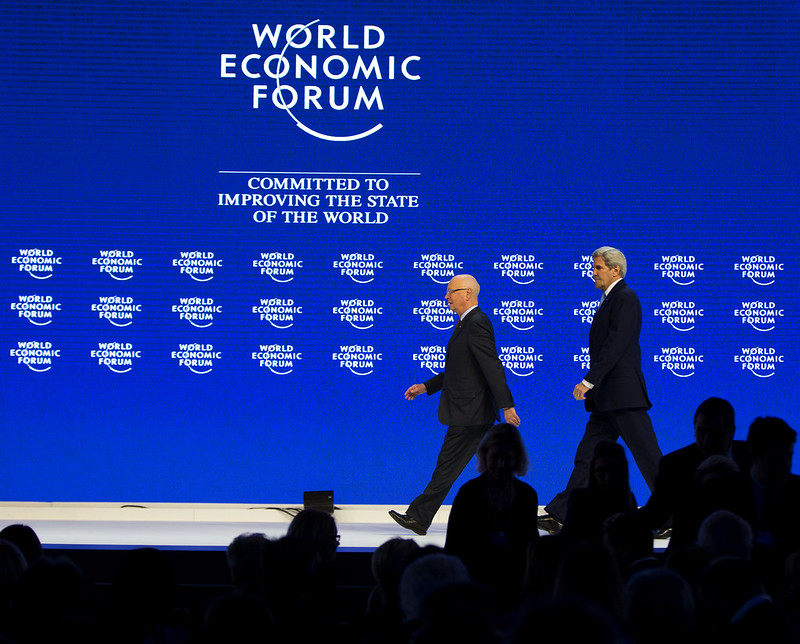
No Idea about Net Zero
On our way to Net Zero by 2050 …
How do we know this? Cause everyone says so. And it’s not just “everyone.” Also committed are really, really smart people, like “essentially all of the colleges and universities,” as well as “elite institutions of every kind and sort,” Francis Menton discloses in his Manhattan Contrarian.
Using the World Economic Forum as an example, Mr. Menton asserts, if there is a group of elitists that are among the elites, this is it:
At their annual confab in Davos, Switzerland, they gather the greatest of geniuses to instruct the very top government and business leaders how to run the world. Would you like to go? It will cost you $52,000 to join the organization, and then an additional $19,000 to attend the conference.
Chartering a private jet to get you there will cost a few more thousand. Once there, you can hear the very smartest people imparting their thoughts on the most important topics of the day, like “The Great Reset,” “Emerging Technologies,” “Diversity and Inclusions,” and, of course, “The Net Zero Transition.”
How the World Gets to Net Zero
In September 2003, three authors from the World Bank wrote “How battery energy storage can power us to Net Zero.” Amit Jain is the lead author and the Bank’s Energy Storage Program.
This is the guy on the receiving end of tens of billions of dollars of government money to pass out to make the energy transition happen throughout the developing world.
Energy storage is something Mr. Menton knows a bit about. The major problem, he points out, is trying to store enough energy. You can read about his Dec. 2022 post on how to make an electrical grid work without full dispatchable backup at this link.
Before we get to the nitty-gritty, though, we should read some of Jain’s “excited happy talk:”
Across the globe, power systems are experiencing a period of unprecedented change. Low-cost renewable electricity is spreading and there is a growing urgency to boost power system resilience and enhance digitalization. This requires stockpiling renewable energy on a massive scale, notably in developing countries, which makes energy storage fundamental. . . .
Making energy storage systems mainstream in the developing world will be a game changer. Deploying battery energy storage systems will provide more comprehensive access to electricity while enabling much greater use of renewable energy, ultimately helping the world meet its Net Zero decarbonization targets. International organizations and development institutions are leading the way forward to enable this decarbonization. . . .
How Much Storage
To meet our Net Zero ambitions of 2050, annual additions of grid-scale battery energy storage globally must rise to an average of 80 GW annually between now and 2030.
“Holy underwear, Batman!,” yowls Mr. Menton.
Could this guy really not even know what units he’s talking about? Thinking his readers might not understand the abbreviation “GWh” he helpfully defines it as “gigawatts per hour”! Could he really be this clueless? And he had two co-authors to check him!
It’s OK that Jain, unlike Mr. Menton, does not provide backup and calculations. Menton calculates it would take some 233,000 GWh of battery storage to fully back up the electrical grid, assuming current levels and patterns of usage.
Since the U.S. is about 4% of world population, we can multiply that figure by 25 to get the storage requirement for the world (assuming that the world electrifies to the U.S. level by 2050). The total would be 5,825,000 GWh. In other words, Jain, et al., are off by a factor of about 650, give or take maybe a few hundred.
Jain and his colleagues have no skin in this game.
They (Jain and Colleagues) just babble some happy talk to get their hands on a few hundred billion of money from rich governments, and pass it out to build impressive-looking battery projects that are actually next to useless to provide reliable grid electricity.
They can be very confident that no one in their circles will ever check the math to see if the numbers add up. When 2050 rolls around and the whole thing doesn’t work, they will be long retired on generous pensions.
If you’re willing to fight for Main Street America, click here to sign up for the Richardcyoung.com free weekly email.




